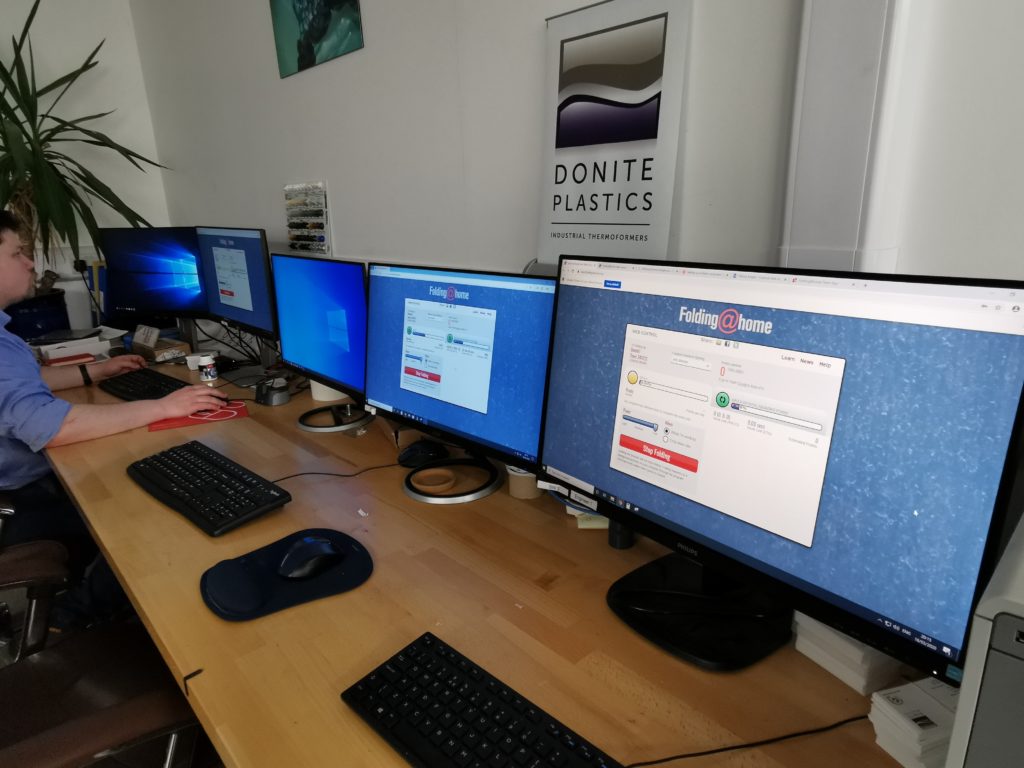AS the Coronavirus (COVID-19) pandemic continues to spread around the globe, Saintfield based industrial thermoforming company, Donite Plastics, is lending its computer power to Stanford University in the hope of finding a way to combat the virus.
Used by Donite Plastics’ team of engineers to design products for manufacturing across a wide range of sectors, their computer-aided design (CAD) and computer-aided manufacturing (CAM) computers are now also being used by scientists at the university to simulate how COVID-19 proteins react.
By running their software on Donite’s computers to gain a greater understanding of COVID-19’s protein structure and how it reacts, Stanford University’s scientists may be able to help predict new ways of treating the virus and its symptoms.
Patrick Knight, Quality Manager and Lead Manufacturing Engineer at Donite Plastics claims that the company’s team of engineers are pleased to be playing a role.
“COVID-19 has been the word on everyone’s lips over recent weeks and the seriousness of the virus is apparent not just in terms of how it is affecting businesses and livelihoods but also the number of lives that have sadly been lost across the world since the outbreak began,” Patrick said.
“Our team of engineers here at Donite Plastics are delighted to know that they are contributing in the fight against this terrible virus, no matter how small that role may be.
“Once our engineers have completed their work during the day, we allow the scientists at Stanford University to use the graphics cards and processors on our high spec CAD and CAM computers, which are usually a tool for our engineers to bring products to life before they are manufactured. Now these programmes are being used to give scientists a better picture of the protein structure of COVID-19 and they can hopefully work to establish how best to deal with the virus going forward.
“We have always been proud of our company and the products we manufacture and it’s even more heartening to know that we have been able to offer assistance during this difficult time. We really hope that the help we have been able to give is valuable to Stanford University’s scientists and we will continue to do all we can to help support them in their work. We encourage anyone with free processing power to visit foldingathome.org to start helping too.”
